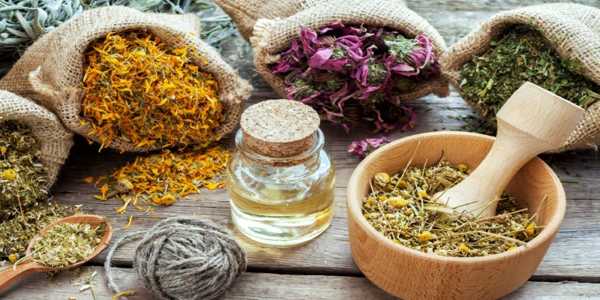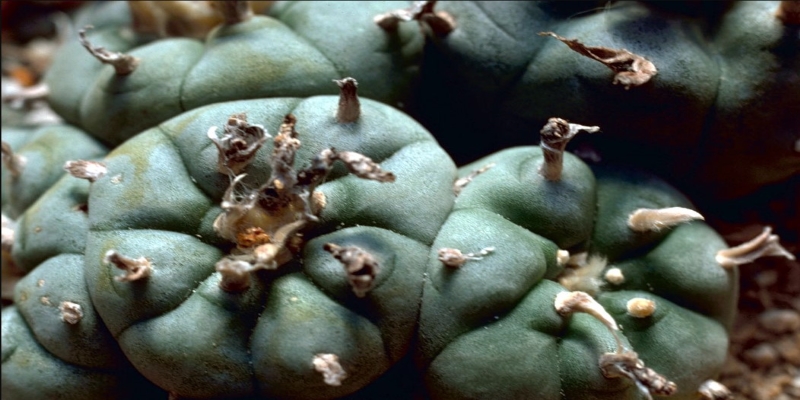
How Plant Medicine Can Support Emotional And Spiritual Healing
 Mental Health & Spiritual Healing
Mental Health & Spiritual Healing In recent years, plant-based medicine has garnered attention for its potential in emotional and spiritual healing. The use of plants, herbs, and other natural substances for health dates back centuries.
In recent years, plant-based medicine has garnered attention for its potential in emotional and spiritual healing. The use of plants, herbs, and other natural substances for health dates back centuries. Today, as the world seeks alternative ways to address mental health, trauma, and emotional well-being, the power of plant medicine is being reevaluated in light of modern science and holistic healing practices. This article will explore how plant medicine can support emotional and spiritual healing, focusing on different types of plant-based remedies and their potential benefits.
The Role Of Plant Medicine In Emotional Healing
Emotional healing involves the process of addressing and overcoming emotional trauma, stress, anxiety, depression, and other emotional imbalances. While therapy, counseling, and medication are common treatments for emotional issues, plant medicine offers a complementary approach by tapping into the body’s natural ability to restore balance.

Certain plants contain compounds that interact with the body's systems, particularly the nervous and endocrine systems, which are critical in regulating emotions. For example, adaptogens like ashwagandha, Rhodiola, and holy basil are known to help the body manage stress. Adaptogens are plants that help the body adapt to stress and normalize physiological functions. These herbs have a calming effect on the body, reducing cortisol levels and promoting a sense of calm and stability.
Other plants, such as St. John's Wort, have been traditionally used for managing mild to moderate depression. Modern studies have confirmed that St. John's Wort may increase serotonin levels in the brain, a neurotransmitter that regulates mood. For individuals dealing with emotional turbulence or periods of low mood, incorporating such plants into their routine may provide a more natural alternative to pharmaceutical antidepressants.
Another key aspect of emotional healing is the regulation of the autonomic nervous system, which controls the body's stress response. Plants such as valerian root, chamomile, and lavender are known for their calming properties, promoting relaxation and helping to mitigate symptoms of anxiety and insomnia. These plants contain compounds that act as natural sedatives, supporting a sense of peace and helping the body relax during times of emotional stress.
The Spiritual Aspect Of Healing Through Plants
Spiritual healing often involves connecting with a deeper sense of purpose, overcoming internal conflict, or finding peace within oneself. Many cultures around the world have used plants for spiritual rituals and healing for thousands of years. For example, in shamanic traditions, plants like peyote, ayahuasca, and psilocybin mushrooms have been used to induce altered states of consciousness. These substances can facilitate profound spiritual experiences that are thought to help individuals process emotional trauma, gain insight into their lives, or find spiritual guidance.

However, it's important to note that the use of such plants for spiritual purposes requires caution, proper guidance, and respect for the traditions from which they originate. In modern therapeutic settings, substances like psilocybin (the active compound in psychedelic mushrooms) have been studied for their potential to treat depression, anxiety, and PTSD. Research has shown that psilocybin can create transformative experiences that help individuals shift negative thought patterns and gain clarity on their struggles, which is often a key part of spiritual healing.
Even more common plants, such as sage, lavender, and frankincense, are frequently used in spiritual practices, particularly cleansing rituals. Burning sage, a practice known as smudging clears negative energy from a space or person. Many people find that the simple act of burning sage or using essential oils like frankincense can help them feel more grounded, connected, and spiritually aligned.
The Connection Between The Mind, Body, And Plants
Plant medicine does not only work on an emotional or spiritual level—it also has physical effects that contribute to overall well-being. This mind-body connection is particularly important when it comes to healing. Emotions like stress and anxiety can manifest physically in the body, leading to symptoms such as headaches, fatigue, and digestive problems. When plants support emotional healing, they often do so by balancing the body’s systems and alleviating physical symptoms associated with emotional distress.

For example, adaptogens like rhodiola are known to enhance the body’s resistance to physical and mental stress. By strengthening the body’s resilience to stress, these plants can help to prevent the physical toll that chronic stress can take, such as high blood pressure or weakened immune function. In this way, plant medicine offers a holistic approach to healing, working not just on the emotional and spiritual aspects but also on the physical health of the body.
Another example is the use of CBD (cannabidiol) from the cannabis plant. CBD has gained popularity for its ability to reduce anxiety, promote relaxation, and support emotional well-being. While CBD does not have the psychoactive effects of THC, it interacts with the body’s endocannabinoid system to help regulate mood, reduce pain, and support overall health. It has become a popular remedy for people dealing with chronic stress, anxiety, or trauma-related symptoms.
Plant Medicine For Trauma Healing
Trauma can leave lasting emotional and spiritual scars. It can create a deep sense of disconnect from one’s true self and can hinder the healing process. Some plant medicines, particularly those used in ceremonial settings, can support trauma healing by helping individuals reframe their experiences and reconnect with their inner selves.

Ayahuasca, a plant brew from the Amazon, has been used for centuries by indigenous people for healing purposes. It contains DMT (dimethyltryptamine), a powerful psychedelic compound that can induce intense visionary experiences. For many, ayahuasca ceremonies serve as a way to confront past trauma, find emotional release, and experience deep healing on a spiritual level. The use of ayahuasca has been studied in clinical settings, and research shows it can help individuals with PTSD and emotional trauma work through unresolved feelings and experiences.
Another plant used in trauma healing is cacao. Unlike the processed chocolate that many are familiar with, ceremonial-grade cacao contains higher levels of theobromine, a compound that can create a mild euphoric effect. Cacao has been used in spiritual rituals in Central and South America, where it is thought to open the heart and promote emotional release. Many people who use cacao in healing ceremonies report feeling a sense of emotional clarity and release, which can help in the healing process after trauma.
While these plants offer a path for deep healing, it is essential for anyone seeking to use them for trauma healing to work with trained professionals who can guide them through the process safely. The emotional release that comes from working with these plants can be intense, and proper support is crucial to ensure a positive outcome.
Caution And Considerations When Using Plant Medicine
Although plant medicine offers numerous benefits for emotional and spiritual healing, it’s essential to approach these remedies with caution and respect. Not all plants are safe for everyone, and their effects can vary based on the individual’s health, dosage, and the context in which they are used. For example, plants like peyote and ayahuasca can be powerful tools for healing, but they should only be used under the guidance of experienced practitioners in controlled settings.

Additionally, some plants can interact with medications or exacerbate existing health conditions. Anyone considering plant medicine for emotional or spiritual healing should consult with a healthcare provider, especially if they are taking medication or have a history of mental health conditions.
Conclusion
Plant medicine has a long history of use in emotional and spiritual healing, offering a holistic approach that addresses not only the mind but also the body and spirit. From herbs that help manage stress to psychedelics that facilitate deep spiritual experiences, plants provide a diverse range of remedies for healing. While these remedies can offer valuable support, it’s crucial to approach them with mindfulness, respect, and caution. With proper guidance and understanding, plant medicine can be a powerful tool for emotional and spiritual healing, helping individuals reconnect with their true selves and find balance in their lives.
